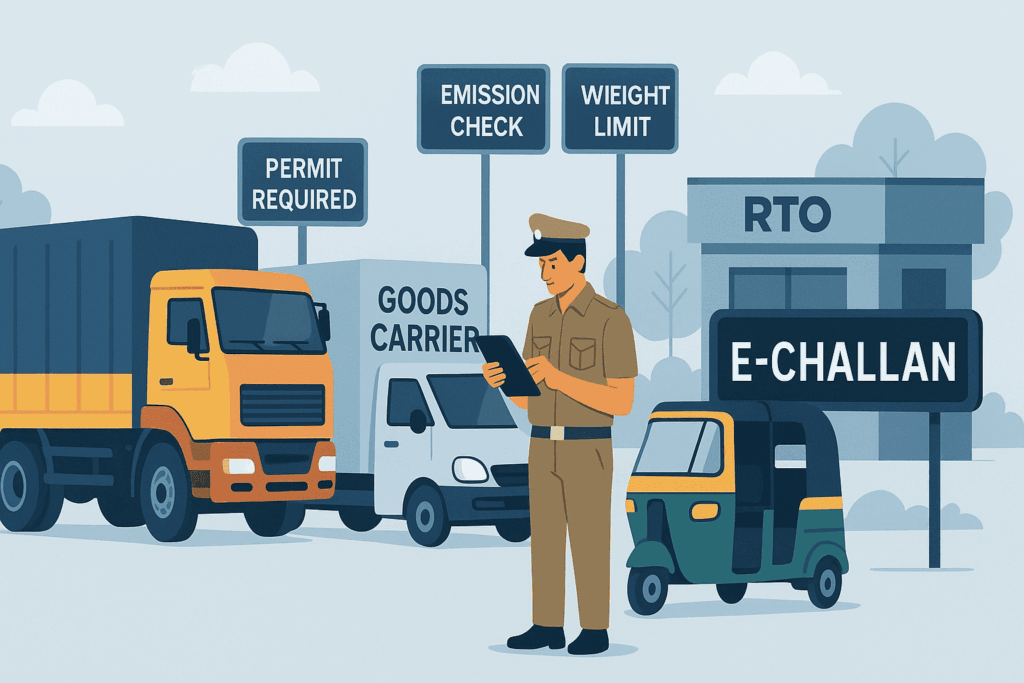Regulation Of Commercial Vehicles

The law of regulation of commercial vehicles is enforced by the local RTOs and the Ministry of Road Transport and Highways (MoRTH). The acts of 1988 and 1989 clearly define insurance, vehicle fitness, permits, registration, license, emissions and penalties.
Key Points
- According to Act 1988 the commercial vehicles must be registered with the transport authority and must meet safety measures.
- Commercial vehicles must have permits according to travel status.
- Vehicle should be loaded according to its axle configuration.
- Vehicles must comply with emissions standards to reduce environmental pollution.
- Commercial vehicles will have to pay GST and other Taxes.
- Drivers must have complete mandatory documents.
Amendment 2025
- A heavy fine will be charged for speeding or drunk driving.
- Fine for over speeding: ₹ 5000
- Drunk driving fine:₹ 20000
- All commercial vehicles must be inspected at the ATS (Automated Testing Station).
- Fitness test of the vehicle will be done by computerized ATS, manual methods of inspections are not acceptable.
- Commercial vehicles must get a fitness certificate every two years.
- Overloaded vehicles will also be fined.
